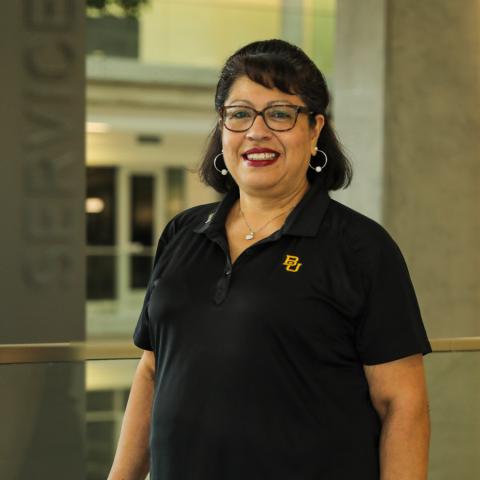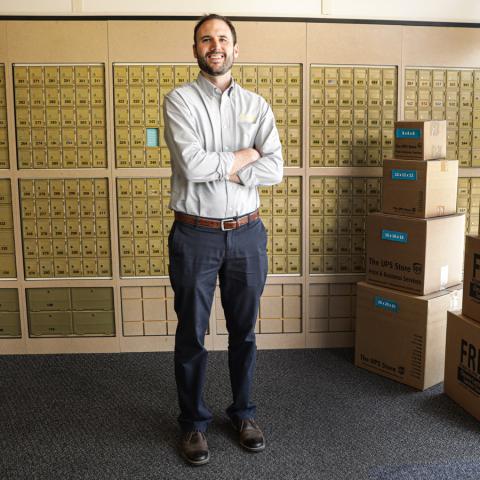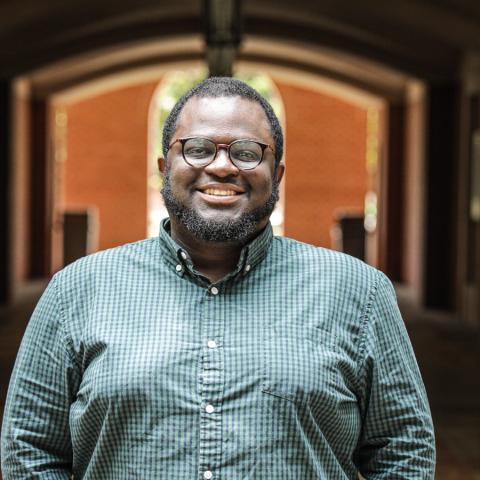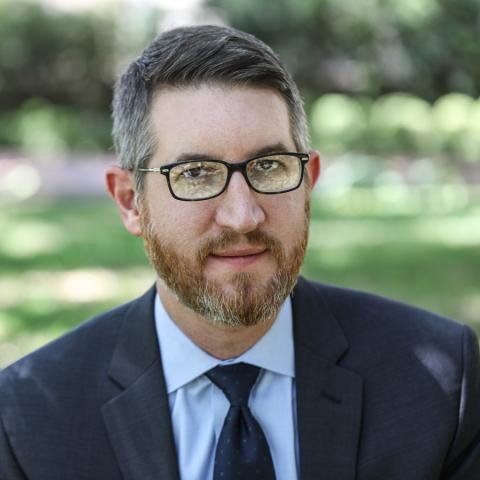Above and Beyond
A caring community attends to students' needs beyond academic instruction — and beyond Baylor.
Editors Note: This story captures a snapshot of the University’s actions as COVID-19 became a disruptive force around the world. Baylor continues an active, evolving course of action. For the latest information, visit baylor.edu/coronavirus.
Life at Baylor appeared normal in the first 10 weeks of 2020. Classes met regularly, All University Sing showcased student talent in late February, and the men’s and women’s basketball teams were enjoying nationally prominent seasons.
Meanwhile, an infectious disease caused by severe acute respiratory syndrome coronavirus 2 (SARS-CoV-2) was ravaging China’s Hubei province and beginning to creep its way around the globe. The World Health Organization (WHO) deemed COVID-19 to be a pandemic March 11. Soon thereafter, life at Baylor and around the world rapidly changed.
However, the University’s response to the pandemic began long before the first confirmed COVID-19 case in McLennan County. In late January, Baylor President Linda A. Livingstone, Ph.D., established a 39-member COVID-19 task force with representation from various departments across campus. The task was simple: Plan Baylor’s operations moving forward in the face of the coming storm.
The University’s first news related to COVID-19 came Jan. 24. The Waco-McLennan County Public Health District reported that a Baylor student who had recently traveled to China had met Centers for Disease Control (CDC) criteria for further testing after being treated at an area hospital. Three days later, the student’s test results were returned negative.
Two days later, Baylor suspended all University-sponsored travel to China, including Hong Kong and Macau, in accordance with global safety and security practices and guidance from the U.S. Department of State and the CDC. Other travel restrictions followed in the subsequent weeks.
The same day that the WHO declared a pandemic, Baylor extended spring break for one week. Faculty were instructed to use the extra week to prepare for online course delivery with hopes of classes returning to campus in early April.
Baylor simultaneously activated specialized websites to provide updated information for the campus community on the rapidly evolving conditions. Within days, American society became unrecognizable. Sports seasons were put on hold or altogether canceled; schools and nonessential businesses closed.
Five days after extending spring break, Baylor announced that the remainder of the spring semester would be handled online and that spring commencement was postponed. Two Baylor faculty members tested positive for the virus March 18, and a student tested positive the following day.
Hopes of campus life soon returning to normal dwindled March 23 when a shelter-in-place edict was announced for McLennan County and Dallas County, home of Baylor’s Louise Herrington School of Nursing.
What understandably would be a logistical nightmare was at the University’s doorstep. Immediately, entities across campus began addressing concerns on campus and in the community.
Bear Care Coaches
More than 7,000 students responded to a Student Life and Academic Affairs survey about needing support to navigate the University’s new academic experience. Another 2,000 students requested assistance after President Livingstone announced the Bear Care Coaches program in an April 6 email.
Bear Care Coaches connect with assigned groups of students weekly, helping the students navigate the stresses of remote online education, being away from their peers and adapting to disruptions caused by COVID-19. More than 300 faculty and staff volunteered and were equipped with relevant training and an engagement plan to ensure outreach to students is handled with the utmost care and consideration.
Dr. Sinda K. Vanderpool, associate vice provost for academic enrollment management and a Bear Care Coach, says the response of faculty and staff members embodies Baylor’s heart and soul.
“We recognize that many of our students likely needed an additional layer of support,” Vanderpool says. “Sometimes, we empathize with the student’s challenges. Sometimes, we are able to work collaboratively with University partners to directly assist students with timely needs that are critical to their success.”
Bear Care Coaches connect students with vital Baylor resources and experts in academic, emotional, financial, physical and spiritual support. Students with immediate mental health concerns are engaged by Care Team services in Student Health and Welfare. Physical needs, such as food and security, are addressed through food resources in and beyond Waco. The program also gathered available resources specific to international students.
Volunteers contact students via email, phone calls and text messages, tracking resources and alerting appropriate University offices of concerns and needs. Sally Firmin, BA ’68, MA ’92, director of Baylor Academic Support Programs, says students have expressed appreciation for the program.
“I have been impressed by the personal detail a student will tell the coach — an indicator of the student’s trust in the sincere intent of the coach, neither of whom previously knew each other,” Firmin says.
Going Home
Students who left Waco at the start of spring break March 6 departed expecting to return roughly one week later. That never happened. The semester continued remotely, but many of the students’ personal belongings were still in Waco.
Campus Living & Learning partnered with Baylor alumni at two local companies to solve the logistical dilemma through the Express Essentials project. Ryan Snitzer, BBA ’18, is founder and manager of Campus Crates, a student moving and storage company. Jordan Gandy, BBA ’05, owns nine UPS Stores in Waco and Austin.
Express Essentials delivered essential items left in residence halls to students no longer in Waco. This was done safely, quickly and free of charge to students. Approximately 850 students were served through the process.
“We were happy to help the Baylor Family when Campus Living & Learning reached out to us,” Snitzer says. “We love giving back to Baylor University and are thankful for students, parents and the University’s ongoing partnership and support.”
Students were notified of the process March 17. A total of 1,455 time slots were provided for signup March 19-23. The team effort involved everyone in Campus Living & Learning and 35 volunteers from other areas of Student Life.
“Everyone remained super flexible with positive attitudes during what felt like chaos at times,” Gandy says. “It was an incredible team effort across the board.”
Time was of the essence, but that did not preclude team members from maintaining strict cleaning regiments and adhering to social distancing measures. Dr. Sharra Hynes, associate vice president for student life, worked with the Express Essentials project.
“We went into [student] rooms many times with them on FaceTime or Zoom so we could find exactly what they needed and where to look for it,” Hynes says.
Items shipped to students included but were not limited to laptops, iPads, textbooks, notebooks and medications. Roughly 1,000 packages were shipped to locations throughout the United States, including Puerto Rico, as well as Guatemala and Mexico. Shipments totaled more than 30,000 pounds in UPS dimensional weight.
“It says a lot about how Baylor cares for its students by financially footing the bill to get students their items back quickly,” Gandy says. “I’m proud to be part of this Baylor community.”
Far From Home
Going home was much more of a process for the nearly 900 international students enrolled at Baylor for the spring semester. Many could not go home at all.
Dr. Jeffrey Hamilton, vice provost for global engagement, and Dr. Mark Bryant, BA ’91, director of International Student and Scholar Services, led the University’s response with international students — a process that began in January.
“We first reached out to students from Asian countries, asking how they were doing and about their families,” Bryant says. “We offered support if they were feeling anxious or if they were struggling in classes because of worrying about family members. Initially, nobody was asking us about going home. Their parents wanted them to stay here.”
As of late April, more than half of Baylor’s international students continued to live in Waco with 218 of those living on campus. The Center for Global Engagement filled the role of a Bear Care Coach, providing assistance for international students remaining in Waco and those who were able to return to their homelands.
“Most of our international students are in reasonably good academic standing,” Hamilton says. “They were already living remotely, so doing something remotely might be easier for them.”
As the possibility for remote education looms for the future, Baylor aims to maintain its thriving international student community. The Center of Global Engagement begins tracking potential incoming international students April 1. Through the first three weeks of tracking, numbers were comparable to last year’s class, and the numbers of international graduate students was higher.
“Now, are those people going to be able to get here? That’s the big issue,” Bryant says. “Baylor is working on online options for them.”
Availability of visas will be the key hurdle for international students planning to begin at Baylor in the fall — apart from travel difficulties or COVID-19 itself.
“The indications from our partners in recruiting is that Baylor is in the forefront of being able to launch with a clear curriculum,” Hamilton says. “Our goal would be for those students to be in Waco in January.”
International students returning to campus this fall likely will face travel restrictions such as mandated two-week quarantines upon return to America. Overall, though, Hamilton expects Baylor to remain an attractive institution for international students.
“Some smaller universities that have more limited programs will probably lose their international students, and that may end up benefiting Baylor in the long run,” Hamilton says. “I think we’ll hold most of our international students. They want to come back. It’s just a question of how possible that is.”
In a generous show of support, several parents of Baylor’s international students from China worked together to send more than 26,000 disposable surgical masks to Baylor. Roughly 20,000 of the masks were for the purpose of distribution to staff and students via Baylor health officials. The Waco Chinese Church funneled the other 6,000 masks to Waco charities such as Meals on Wheels and Shepherd’s Heart food pantry.
Feeding the Children
The University’s response to the COVID-19 pandemic extends beyond current and soon-to-be Baylor students.
Jeremy Everett, MDiv ’01, is founder and executive director of the Baylor Collaborative on Hunger and Poverty, which was launched last year on the 10th anniversary of the Texas Hunger Initiative. The Collaborative’s work is among the strategic initiatives outlined in the University’s Illuminate strategic plan, with Baylor becoming a recognized leader on poverty research and integrating social science with social responsibility. The Research Fellows Program, Global Hunger and Migration Project, Hunger Data Lab and other programs fall under the Collaborative’s umbrella.
With school districts closed due to the COVID-19 pandemic, thousands of children who depend on school lunches were in limbo. The Collaborative launched COVID19TxFoodResources.org, an informative resource for families and communities in need of meals. Additionally, the Collaborative joined with the U.S. Department of Agriculture (USDA), McLane Global and PepsiCo to deliver millions of meals directly to students in closed rural districts.
“We were thinking, ‘How do we make sure that kids, at the very least, even though school’s out, have access to meals?’” Everett says.
Providentially, the Collaborative ran a pilot program called Meals-to-You last summer. In a 10-week period, roughly 480,000 meals and snacks were provided for 4,000 children in rural parts of Texas. This spring, however, the meals were needed far beyond Texas.
“Admittedly, I’ve never scaled a national program from my living room, and it’s been a bit of a logistical challenge,” Everett says. “But we have team members who are great at innovation and strategy and implementing that. We have a great team working with wonderful Baylor administrators who are operationalizing it for us on the Baylor side of things.”
Field personnel coordinate the Collaborative’s efforts in Texas. This allows the leadership team to focus on national programs, working with the USDA and Congress.
“A lot of our job with the Texas Hunger Initiative — even before we created the Baylor Collaborative on Hunger and Poverty — was to develop scalable solutions to addressing hunger and poverty, whether that’s domestic or global,” Everett says. “The formula was already there, and we probably scaled this year’s program a little faster than we normally would under the circumstances.”
Initially, according to USDA Commissioner Sonny Purdue, more than a million meals per week were delivered. Doug McDurham and Dustin Koontz lead the Collaborative’s innovation team, and they designed a system that delivers a box containing 10 breakfasts and 10 lunches to each eligible child. McDurham and Koontz work with state agencies who then work with school districts to identify eligible children. By mid-May, the program was serving 5 million meals per week to rural children across two-dozen states and Puerto Rico.
The Collaborative’s model brings together government, the nonprofit community, school districts and the private sector. Everett says this expands a program’s capacity exponentially.
“Our philosophy is that hunger and poverty are too big for any one person, one organization or one sector to address by themselves,” Everett says. “You have to get all of the sectors working seamlessly together if you’re going to address the world’s biggest systematic problems that have oftentimes been pervasive for centuries, if not throughout all human history.”



